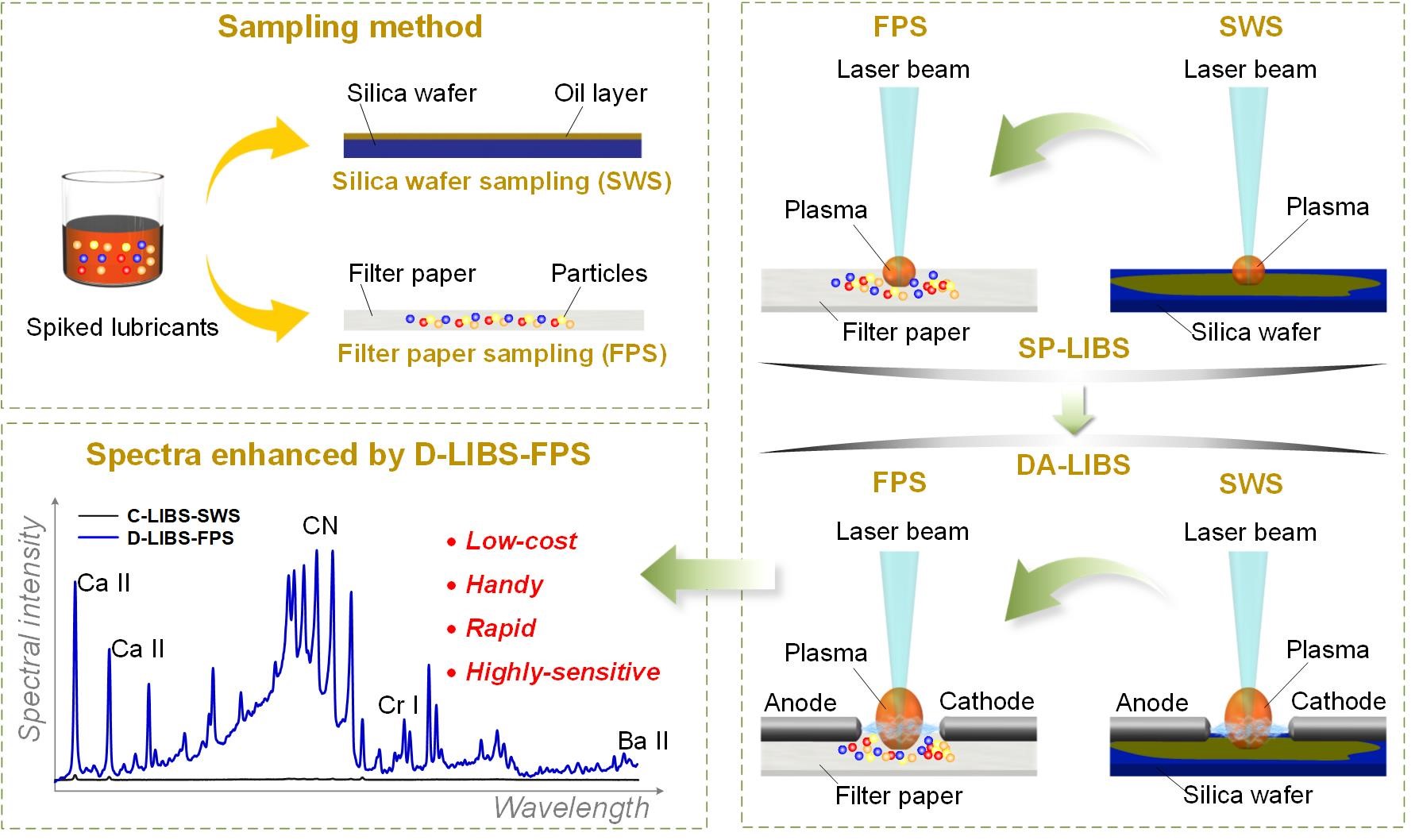Laser-induced breakdown spectroscopy (LIBS) is a promising trace detection technique to realize the rapid, real-time, and on-line analysis. However, LIBS faces unfavorable factors such as large signal fluctuations, low spectral intensity, poor signal-to-noise ratio, and low detection sensitivity. The discharge-assisted enhancement strategy is a low-cost and efficient plasma enhancement method. Unfortunately, this method suffers from the interference of the liquid phase to the discharge process when detecting the liquid sample. This interference could result in the large fluctuations in LIBS signal, contaminate the detection optical path, and even prevent detection, which greatly hinders the application of discharge-assisted LIBS (DA-LIBS) for qualitative or quantitative analysis of trace species in liquid samples.
To fill this gap, a research team led by Prof. TANG Jie from Xi'an Institute of Optics and Precision Mechanics (XIOPM) of the Chinese Academy of Sciences (CAS) proposed a method of combining DA-LIBS with filter paper sampling (FPS). The study was published in Analytical Chemistry.
In this study, DA-LIBS-FPS continuously re-heated and re-ionized the species in the plasma, resulting in the plasma lifespan expended from several microseconds to near one-hundred microseconds. The plasma spectral intensities were enhanced by 1-2 orders of magnitude. Moreover, FPS cleverly overcome the unfavorable factors from the liquid phase interference with the discharge process, and provided a more stable laser ablation process. Therefore, the stability of LIBS signal was improved by 33%. By virtue of the significant spectral enhancement effect, the detection limits of trace Ca and Ba elements were reduced to the order of ppb (1 ppb = 10-9 = 1 part per billion), which was nearly two orders of magnitude lower than that of the traditional single-pulse LIBS. Compared with other LIBS enhancement techniques (e.g., double-pulse LIBS), this method not only enjoyed the same high level of detection sensitivity, but also had the advantages of low cost, low energy consumption, and easy installation.
These above studies suggest that DA-LIBS-FPS can offer great potential and value in the application of environmental and ecological monitoring of waste oil pollution, benefiting tracing the source of pollutant elements, and promulgating and implementing of reasonable prevention and governance measures.
(Available online 12th December 2023)

Concept and layout of the improvement of LIBS in trace detection. (Image by TANG Jie)
Download: